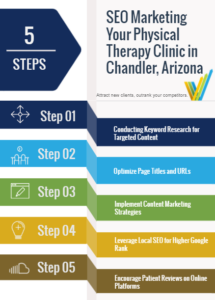Most law firms are investing heavily on their website and SEO. They are already aware that the majority of people search for law firms’ services sites from the internet. According to research, about ninety-six percent of clients seeking legal services use a search engine. Out of this percentage, seventy-four percent of consumers go to a legal site to take action. This has resulted in the legal space being among the most competitive vertical in search engine optimization. Attorneys are increasingly grappling with the changing consumer preferences, technical online marketing barriers, and online competition through optimizing their law firm websites. This blog exclusively goes through what you need to know about optimizing legal sites.
Search engine optimization involves the configuration of off-site and on-site elements of a site for it to rank higher for keyword terms in the search engine results page. With about sixty to eighty percent of the total search engine market share is dominated by Google. Although most of the website optimizing tactics can be applied across many industries, they require to be personalized in the legal sector for them to be sufficient enough. The regulations and rules that have been put in place by state bar associations make legal vertical marketing to be different from other industries. As an attorney, you need to be cautious about how you represent your firms online.
Keyword Research Specifically For The Legal Industry
The first step in optimizing legal sites is keyword research. The right keyword will get your website to appear on the first page of the search results. Lawyers need to pay more attention to keywords with a purchase intent indicating the client is ready to sign up and receive legal services. More so, the keyword terms should have a large search volume to generate massive traffic for the legal site. You want to establish what people are inputting in search engines and the legal services they are looking for in terms of those searches. You can check out the keyword phrases in which your legal firms’ competitors are ranking for and make your content more valuable an relevant.
On-Page SEO
Titles tell a lot about a company. Similarly, Google uses the website’s title to judge them on their ranking position. You need to have a good title for your law firm that can explain what you deal with in a few words. You can use the title tag to give some details about who you are. Additionally, you should include google map on your website at the ‘contact us’ or ‘about us’ page. This will make it easier for your clients to know your location. Fill in your address by adding a Google+ local page. The law firm name and address should be consistent. These on-page SEO strategies will reward you by giving you more clients.
Calls To Action
Calls to action are essential in ensuring site visitors take action. For maximum optimization, legal sites need to have attorney-specific calls to action. Lawyer CTAs are different as well as requires an additional strategy concerning SEO. The lawyers call to action should be above the website page otherwise known as the fold. This is above the point at which visitors have to scroll down to view more information. More so, the phone number contacts should be indicated on each website page in a prominent location such as the site header. You need to show multiple ways in which site visitors can get to your law firm other than contact form and phone number.
Content
Website content is one of the significant factors for search engine optimization. You need to upload valuable and relevant content blogs related to legal information. For lawyer SEO, the website content should be written by legal professions such as JDs, lawyers or paralegals. It should be content written by lawyers for lawyers. Various states have established rigid rules about online publishing of legal advice. Attorneys should write their legal firm’s site content in house, outsource the job to an agency with appropriate resources or hire a lawyer or a JD. You want your site visitors to see your legal professions through your site content.
Conclusion
In conclusion, lawyers no longer have an option other than market their legal sites online. They cannot afford to stay behind their competitors who are already optimizing their law websites. Many people are looking for legal services information online. Optimizing your legal sites for search engines will ensure that you appear on the first page of the search engine results page. Always remember that a well-optimized SEO is like a good wine, it will take time to achieve the results that you desire, but they will surely come.






